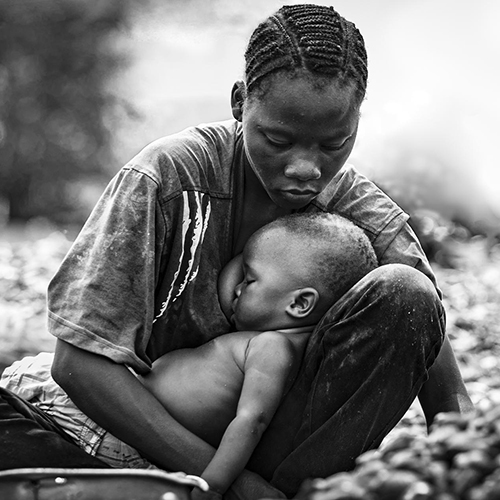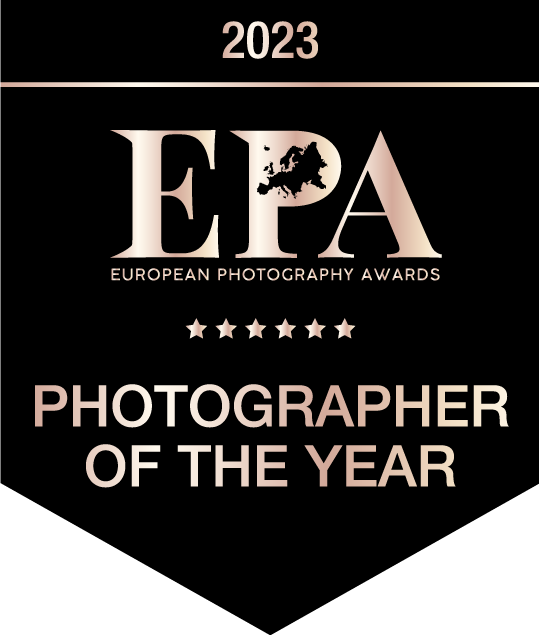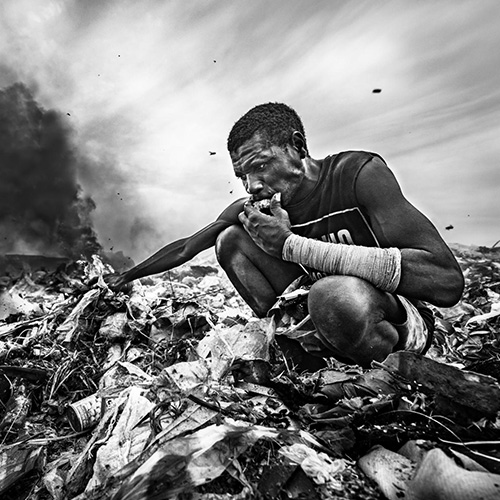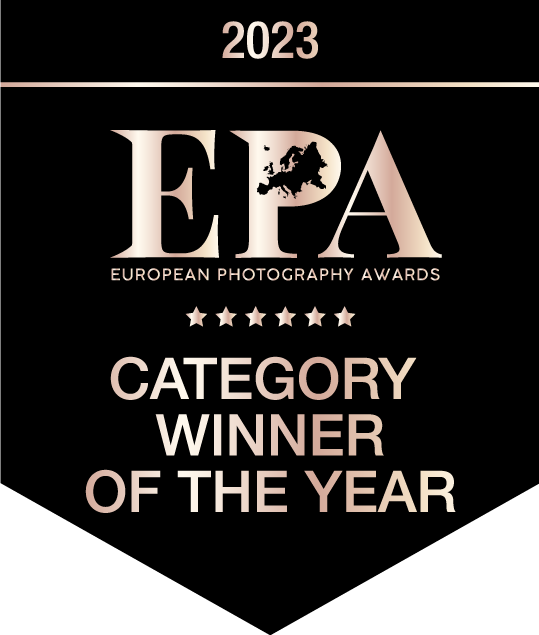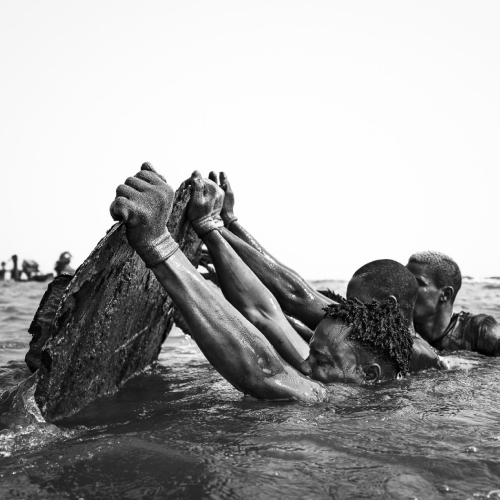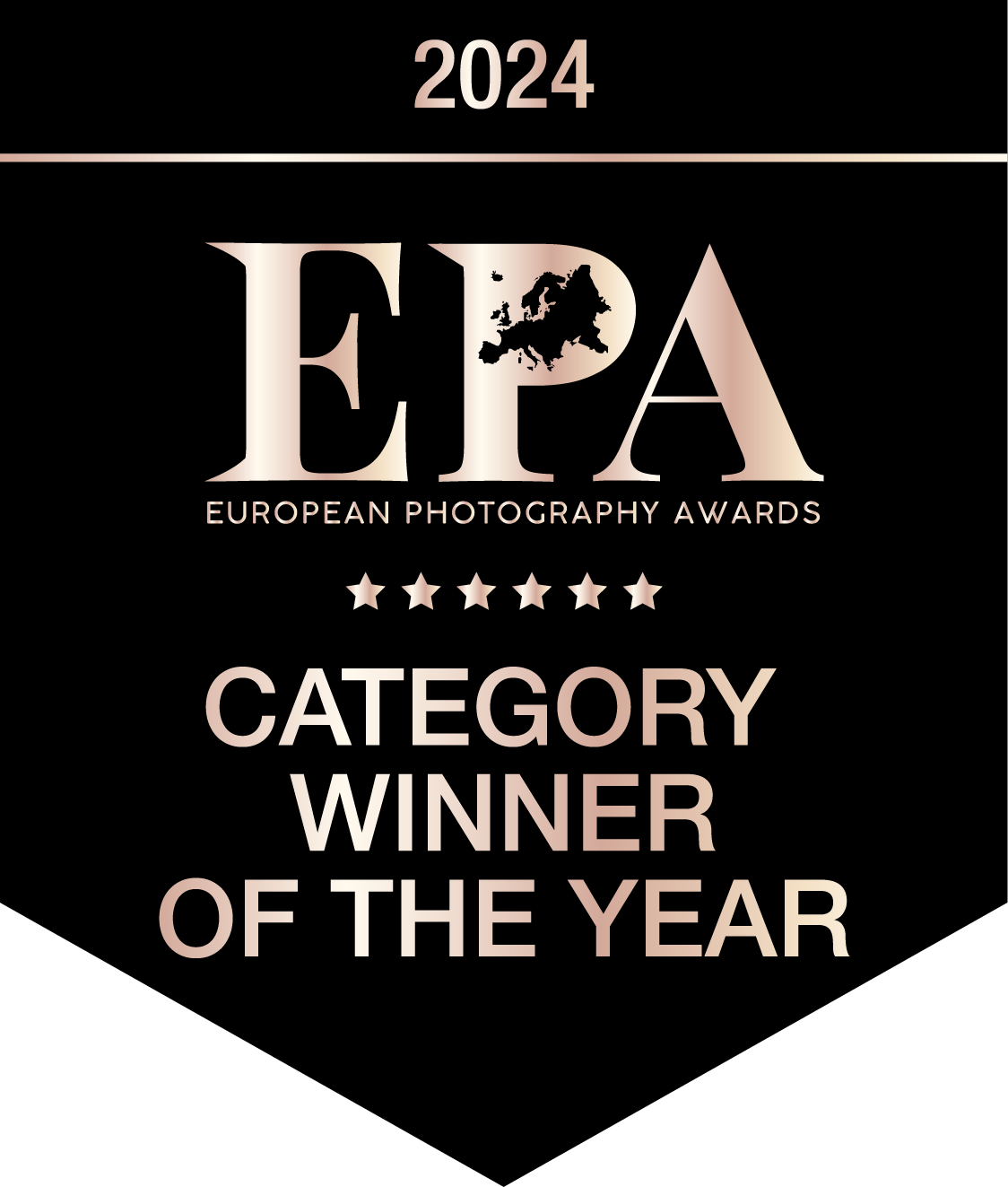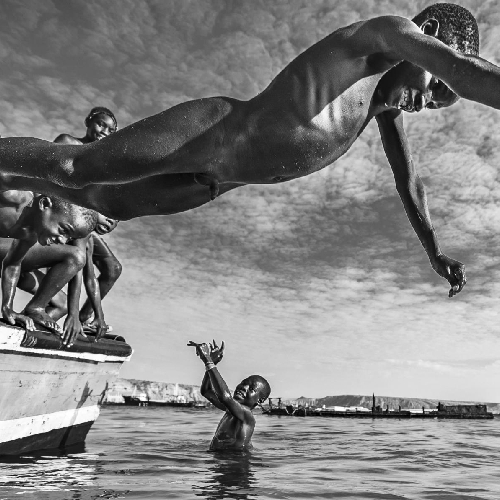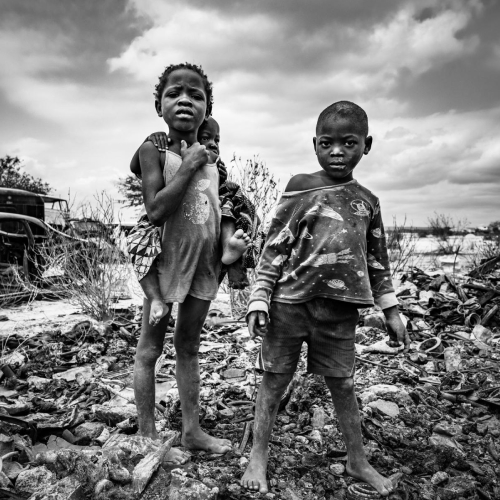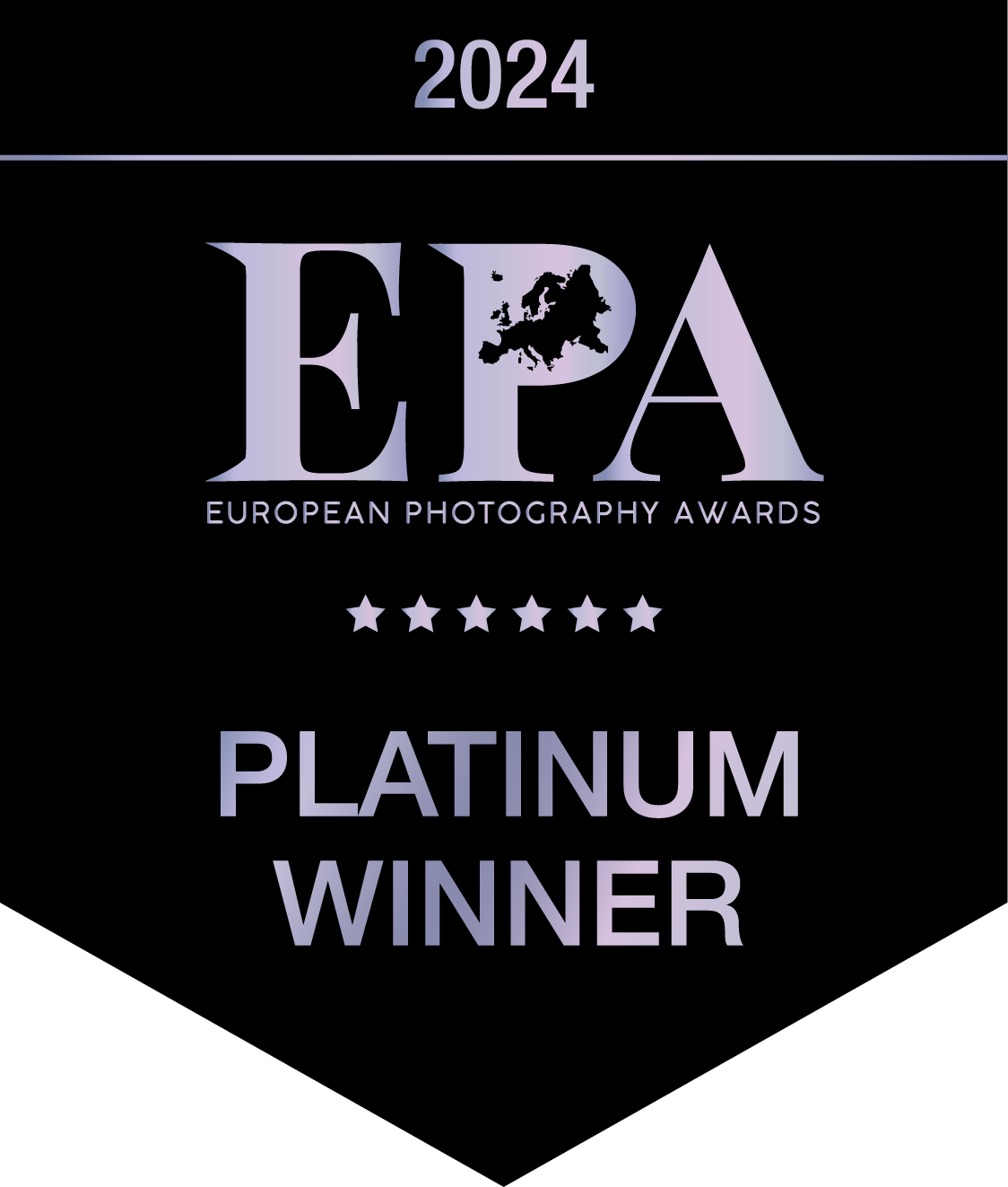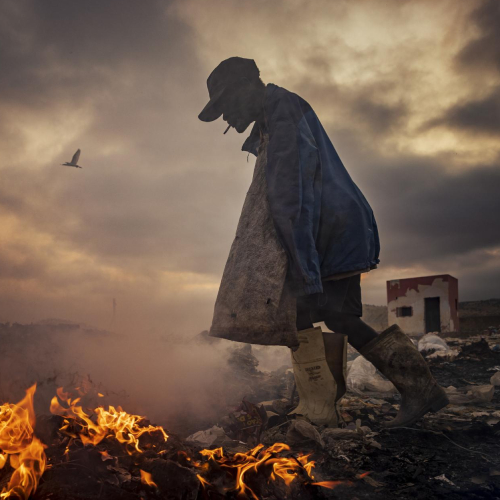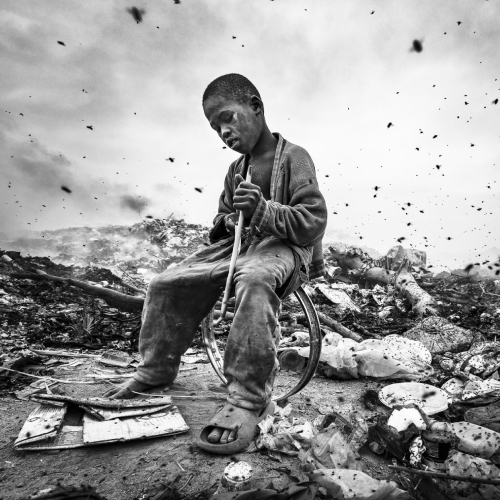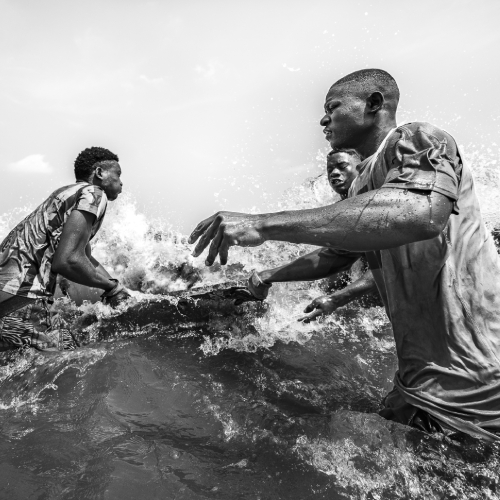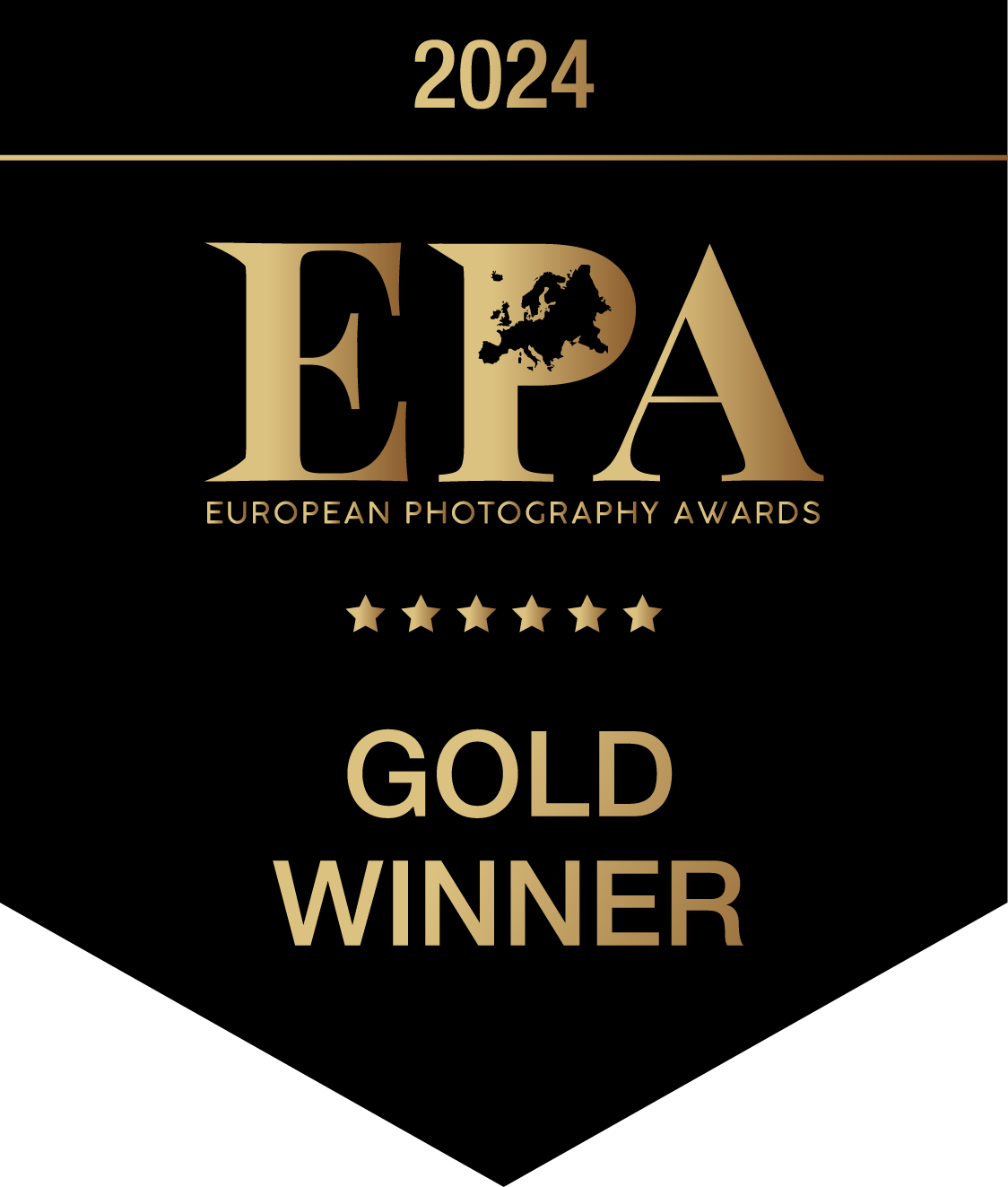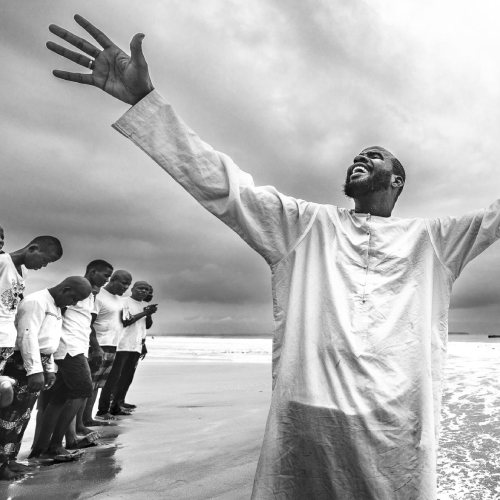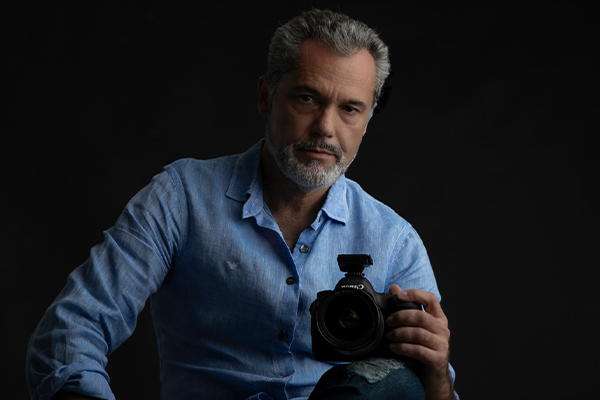
João Coelho
1. Can you introduce yourself and talk about how you got into photography?
I was born in Angola, but when I was 11, I went to live in Portugal until about 17 years ago, when I returned to Angola, where I still live. I graduated in law but currently work as a consultant on social sector development projects in Angola. I've had a passion for photography for as long as I can remember, particularly after buying my first camera when I was 18. At the time, I focused more on nature and landscape photography, having published several text and image articles in Portuguese tourism and leisure magazines. My passion was dormant for several years due to the demands of my professional life. It was reborn about six years ago, now with a focus solely on documentary photography.
2. Where did you study photography?
I've never attended a photography course, I've always been self-taught. When I bought my first camera, there was still no internet, nor the ease of access to information or online courses found today. I remember devouring books and specialized magazines and everything I know about photography today was the result of a learning curve made up of trials and errors.
3. Do you remember your first shot? What was it?
My first roll of film was used entirely for backlighting experiments in nature, shooting flowers, trees and landscapes. At that time it was impossible to preview the photos on the camera, so I remember, with some nostalgia and melancholy, the anxiety as I waited for the film to be developed.
4. What equipment do you use?
I currently shoot with a Canon R5 with a 14-35 f/4 mm lens in the vast majority of situations. Occasionally I use a 70-200 mm f/4 zoom.
5. What do you hope to achieve?
More and more I see my photographic work as a true mission. As I've developed documentary photography with a strong humanist streak, telling stories of survival and admirable resilience, I've acquired enormous respect and admiration for the people I photograph. Today, I feel a great desire and responsibility to show these lives to the world and try to fight against a kind of irreversible fate intertwined with their lives. If I can somehow draw attention to the inequalities and injustices that are revealed in my work, I will feel fulfilled as a photographer and as a person.
6. What compliment inspired/touched you the most?
I can consider myself privileged because I have had truly exceptional support from countless friends who follow and cherish my work. Despite the immediacy and impersonality that characterizes the social media, I realize that the vast majority of the compliments and comments I receive are said with sincerity and require time and attention from their authors. For this reason, they are all inspiring to me and many of them truly touch me.
7. What inspires your unique storytelling?
An enormous desire to tell the stories of the lives of people who struggle daily for their survival and who are often unknown or ignored by the vast majority of people.
8. What THREE (3) words describe your photography style?
Closeness, humanism, emotionality.
9. Congratulations! As the winner of the European Photography Awards, what does it mean for you and your team to receive this distinction?
This is undoubtedly a landmark moment in my career as a photographer. These awards are a great honor and a huge incentive for me, but they also mean a lot to the people I photograph, because with them I can reach a wider audience to raise awareness and convey the messages I want to convey with my photography.
10. Can you explain a bit about the winning work you entered into the 2023 European Photography Awards, and why you chose to enter this project?
These works are representative of what I want to convey with my photography. The "Resilient mothers" series portrays mothers in extreme working situations in order to survive, but also depicts how they are able to give care and attention to their children regardless of the harsh conditions in which they live or work. As well as denouncing these conditions, they are examples of dedication and enormous resilience. In the case of "The end of the line", as the title suggests, I wanted to show how far a human being can go to survive. It's a dramatic scene about the human condition that aims to shock the viewer, who would probably never imagine that in the 21st century and in an increasingly globalized world, there were still situations like this.
11. How has winning an award developed your career?
Winning an award as significant and far-reaching as this one is certainly a huge development for my career. With it, my photography and the messages I want to convey with it can reach a wider audience. It also represents a tremendous responsibility for me, because as will force me to grow even more photographically speaking and to maintain a high level of quality in all my work.
12. Name 1-3 photographers who have inspired you.
Josef Koudelka, Sebasti
13. What advice would you give someone who would like to become a photographer today?
First of all, study and seek inspiration from classic photographers and from those who arouse emotions in you. If that happens, it's because that style of photography is close to your heart and that's what matters to keep your passion alive. Secondly, practice to the point of exhaustion and raise your critical sense, only then will you be able to make the camera a mere extension of your body. Finally, don't get lost in the technical aspects of cameras. You don't need to invest a fortune in photographic equipment to take iconic photographs.
14. What is your key to success? Any parting words of wisdom?
Unfortunately, there is no magic recipe for a photographer's success. What I can say about this is very simple: it all depends on the size of the passion you have for photography and the will and determination you put into yourself to continually surpass yourself in terms of the quality of the photography you do.
15. How do you stay in that space of being receptive to new information and knowledge?
This is a very interesting question that inevitably leads me to comment on the issue of AI in photography that is being debated so much today. Personally, I don't consider AI-generated images to be photography. They are, or I hope they will be, a form of art that is distinct and completely separate from photography as we understand it today. As I quoted Ansel Adams earlier, the most important thing for me in photography is the photographer, the person behind the camera who puts their own artistic sensibility into the images he captures, the emotions and feelings they felt when observing a particular scene, the desire to tell a particular story through images. Curiously, and in a completely opposite direction to the AI generated photography, I feel an enormous attraction and desire to acquire new knowledge in analog photography. In a word, I'm a purist, but always receptive to new knowledge.
16. Anything else you would like to add to the interview?
I would like to renew my most sincere thanks to the jury and to the entire European Photography Awards team for the opportunity to talk a little about me and my work, and also for the quality and commitment they put into this event and into promoting quality in photography.
